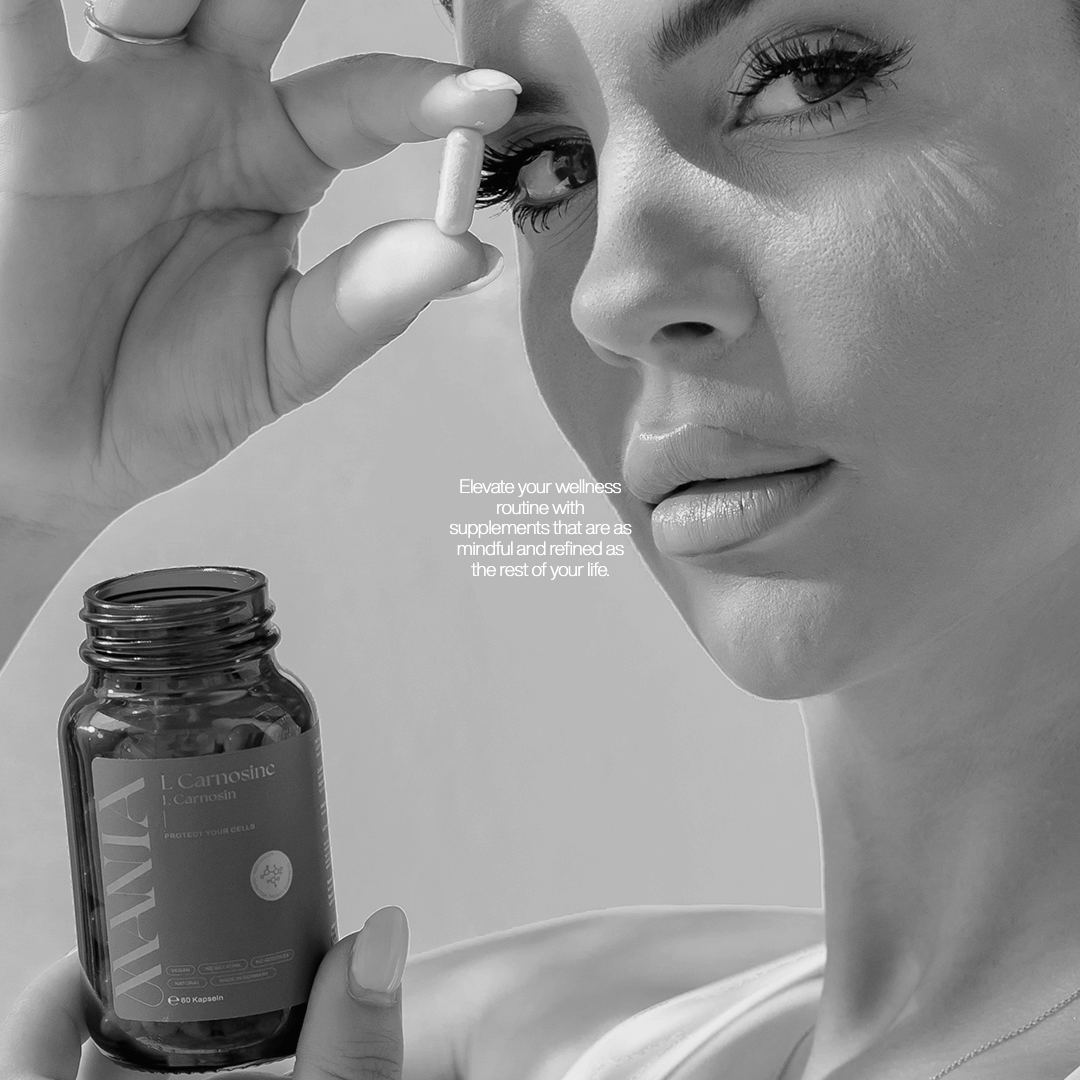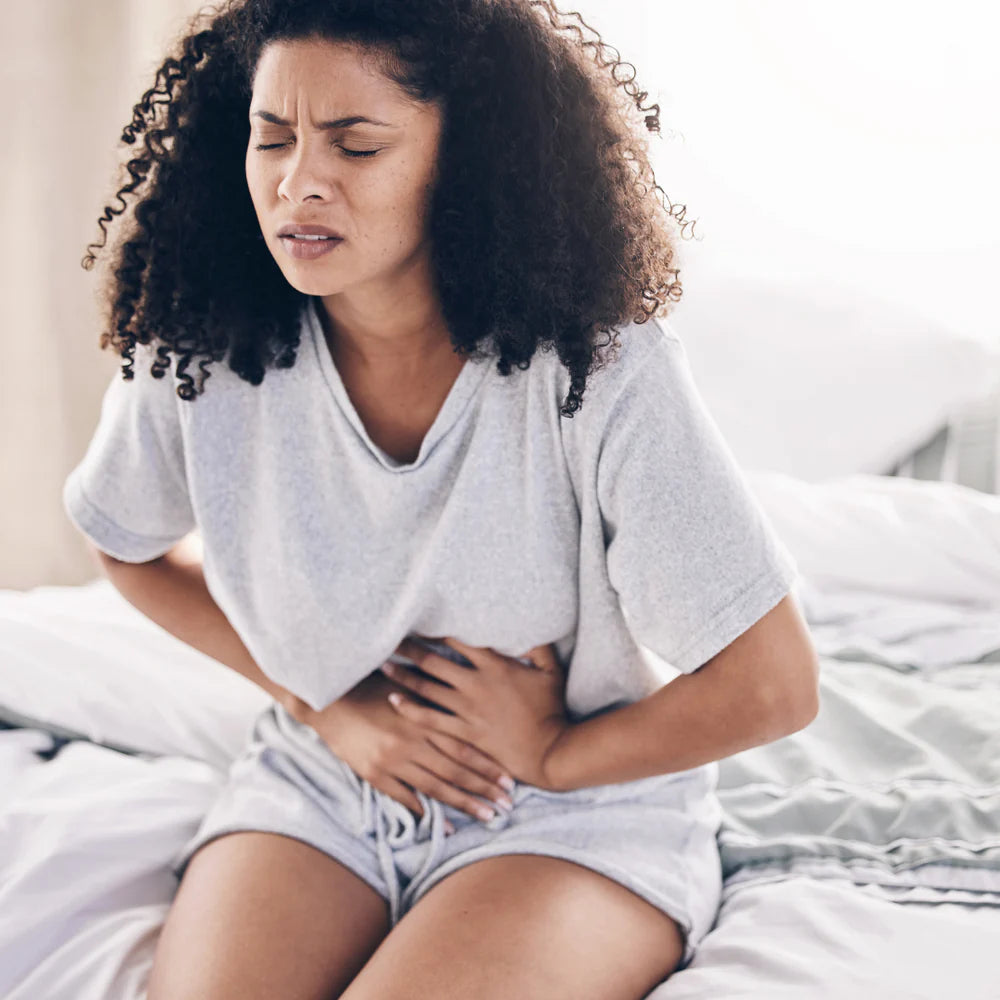1. The suffering is great!
2. How does PMS occur?
3. THIS always helps my clients!
4. Conclusion
It's that time again. A few days after ovulation, traits emerge in me that I've only ever seen in bad romances. My mood is as changeable as April, my cravings are like those of a pregnant woman, and my skin looks like a teenager going through puberty. WOW. When day X arrives and my period starts, I'm a body of pain. I don't leave my bed without painkillers; with the intensity of the cramps, I imagine the contractions of childbirth. In summary, you could say that I become a vampire for one week a month. That's normal, I think. That's just the hurdle we women have to overcome.
Hi, my name is Santina and I am a holistic nutrition coach. My client gave me this passage from her diary some time ago. I can tell you in advance that this type of menstruation is a thing of the past and that she now lives a life in harmony with her body.
1. The suffering is great!Unfortunately, many women do not know that a painful cycle is caused by an imbalance of hormones and are happy to take painkillers. However, very few are aware that painkillers represent an additional burden. All medications must be metabolized by the liver and excreted by the kidneys. I am all the more grateful that more and more young women are looking for natural solutions and finding their way to me. With this blog post, I would like to encourage even more women not to accept this painful fate and to gratefully accept the gifts of nature! I will explain to you how PMS arises and what really helped my client!

2. How does PMS occur?
Premenstrual syndrome (PMS) is a common challenge for many women and is often considered an inevitable part of the menstrual cycle. However, PMS is not simply "normal"; it indicates hormonal imbalances, particularly in the hormones progesterone and estrogen.
The menstrual cycle is regulated by the complex interaction of hormones, mainly estrogen and progesterone:
- Estrogen: This hormone is dominant in the first half of the cycle and promotes the growth of the uterine lining. After ovulation, estrogen levels should decrease.
- Progesterone: After ovulation, the corpus luteum produces progesterone to prepare the uterine lining for a possible pregnancy.
The following imbalances often occur with PMS:
- Estrogen dominance: Too high estrogen levels in relation to progesterone can lead to water retention, mood swings and breast tenderness.
- Progesterone deficiency: Low progesterone levels can contribute to anxiety, sleep problems and irritability.
These imbalances can affect neurotransmitters in the brain, especially serotonin, which is responsible for mood. An imbalance of these hormones can cause the typical PMS symptoms.
Menstrual cramps (dysmenorrhea) are caused by:
- Prostaglandins: These are hormone-like substances produced in the lining of the uterus. High levels of prostaglandins can cause stronger uterine contractions, leading to painful cramps.
- Hormone imbalances: An imbalance of estrogen and progesterone can affect the production of prostaglandins, increasing the intensity of cramps.
3. THIS always helps my clients!
Maca- the power from the Andes:
Maca, the Andean root plant known for its adaptogenic properties and ability to support hormonal balance:
- Regulation of the hypothalamic-pituitary-adrenal axis: Maca acts on the HPA axis, which plays a central role in hormone regulation. By supporting this axis, maca can help balance the production of estrogen and progesterone, thereby alleviating the symptoms of PMS.
- Balance hormone levels: Maca contains nutrients and bioactive compounds that can positively affect hormone balance. Studies have shown that maca can increase progesterone levels while reducing excess estrogen, helping to relieve PMS and cramps.
- Stress reduction: As an adaptogen, Maca can increase stress resistance. Stress can negatively affect hormone production and worsen PMS. By reducing stress, Maca can indirectly help promote hormonal balance.
- Supports serotonin metabolism: Maca can positively affect serotonin levels in the brain, which can lead to improved mood and a reduction in PMS-related mood swings.

Conclusion
PMS is always a sign of hormonal imbalances, especially in estrogen and progesterone. These imbalances can cause a variety of unpleasant symptoms. Maca offers a natural way to regulate these imbalances and relieve PMS symptoms by supporting hormone balance, reducing stress and improving mood. You can think of Maca as a DJ that gently regulates your hormones. By taking Maca regularly, countless women have experienced a solution to their complaints and a better quality of life during their menstrual cycle.
The Maca from MANIA Concept has proven itself in particular: It comes directly from the Andes in Peru and has the best bioavailability! Because believe it or not, the global demand for Maca has prompted manufacturers to grow it in mass plantations in China. This reduces production costs, but unfortunately also significantly reduces the mineral content! Another plus point with MANIA is that the Maca comes to your home in organic quality. It grows at up to 4,500 meters above sea level and is very resistant to extreme weather. Maca is the perfect superfood for your hormones!








Leave a comment
This site is protected by hCaptcha and the hCaptcha Privacy Policy and Terms of Service apply.